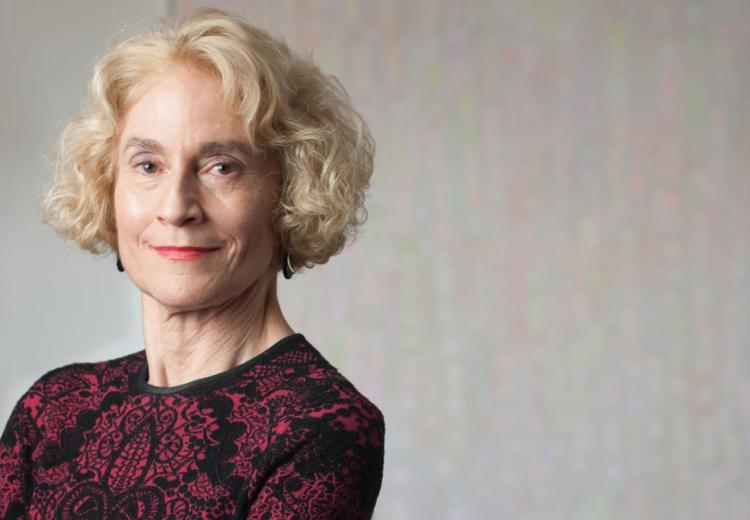2017 Jefferson Lecture: Martha C. Nussbaum

Martha C. Nussbaum
National Endowment for the Humanities
"Making a future of justice and well-being is hard. It requires self-examination, personal risk, searching critical arguments, and uncertain initiatives to make common cause with opponents—in a spirit of hope and what we could call rational faith. It’s a difficult goal, but it is that goal that I am recommending, for both individuals and institutions"
—Martha C. Nussbaum, "Powerlessness and the Politics of Blame," 2017
Martha C. Nussbaum delivered the 2017 Jefferson lecture, titled, "Powerlessness and the Politics of Blame" on May 1, 2017. Drawing on ancient Greek and Roman thought, as well as insights from modern psychology, Nussbaum argues that "anger is a poison to democratic politics" and should be resisted. Anger, she says, can be misinformed and misplaced; it can lead to a harmful focus on relative status; it can cause us to focus on retribution in a fruitless attempt to fix past harms; it leads us to search for someone or something to blame. Instead, we should take the justifiable outrage we feel at injustice and channel it towards the future in "an intelligent and imaginative effort toward justice." The full text of her lecture is available here.
About Martha C. Nussbaum
A distinguished philosopher known for both the breadth of her work and her ability to engage academic and general audiences alike, Nussbaum is the Ernst Freund Distinguished Service Professor of Law and Ethics at the University of Chicago. She has authored more than twenty books, covering topics from ancient Greek and Roman philosophy to modern political theory. She has also worked in the field of international development, helping to create new ways of assessing human well-being and advocating for a model of philosophical writing that is engaged with real life. Despite Nussbaum's seemingly eclectic interests, her work is united by an single underlying preoccupation: as she said in an interview with NEH Chairman William Adams, "My whole career is about the search for the conditions of human flourishing, and asking, What are the catastrophes that can get in the way?"
Learn More
Read and watch an interview with Nussbaum and NEH Chairman William Adams.
Classroom Connections
Nussbaum's lecture is a thought-provoking intervention on democracy and what conditions are required for it to function well. The following resources provide additional information about and context for ideas of democracy in the United States.
- Closer Readings Commentary: Democracy in America: Alexis de Tocqueville's Introduction
- Closer Readings Commentary and Curriculum (Grades 9-12): Alexis de Tocqueville on the Tyranny of the Majority
- Lesson Plan: "Common Sense": The Rhetoric of Popular Democracy (Grades 9-12)
- Lesson Plan: Walt Whitman to Langston Hughes: Poems for a Democracy (Grades 9-12)
